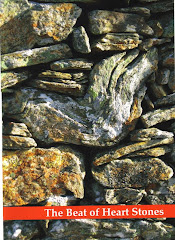 The village of Kogelo in western Kenya would now like to update the name of its secondary school to take account of recent world events. From the bus travelling west out of Nairobi into the streets of steamy Kisumu on Lake Victoria, we heard, along with the distinctive 'tuk tuk' of the Paiggio auto rickshaws, the streets drumming with the words 'Obama' and 'Kogelo'. My friend Philo, probably because she was with me, was hailed as 'Michelle' in the streets, taken for a black American. In Jomo Kenyatta park, huge banners and monstrous screens were erected, and a line of people directed the hose of the fire engine to damp down the loose red earth in preparation for crowds whilst children leaped in and out of the spray.
The village of Kogelo in western Kenya would now like to update the name of its secondary school to take account of recent world events. From the bus travelling west out of Nairobi into the streets of steamy Kisumu on Lake Victoria, we heard, along with the distinctive 'tuk tuk' of the Paiggio auto rickshaws, the streets drumming with the words 'Obama' and 'Kogelo'. My friend Philo, probably because she was with me, was hailed as 'Michelle' in the streets, taken for a black American. In Jomo Kenyatta park, huge banners and monstrous screens were erected, and a line of people directed the hose of the fire engine to damp down the loose red earth in preparation for crowds whilst children leaped in and out of the spray.'Kogelo?' asked a matatu minibus driver, leaning from his window, hand cupped upwards in the usual gesture of query for business. 'Yes we can'. Kogelo was the place to be on 20th January, and we crossed the equator to get there. For a moment it seemed that the world's attention turned onto this tiny place on a high red dust plain between boulder strewn hills and the Lake.
The party brimmed with pride and happiness. 'You're welcome,' said elderly women and men holding leather-skinned hands out to me. 'Congratulations,' I replied. They stood near the staged seating, hats and dresses of dignitaries brought to the Kenya Tourist Board stand from where a programme of speeches and performances could be watched. A flour company gave away free calendars to an ever-lengthening queue as if it was flour itself that was being given - the much-disputed maize. A company from nearby Kericho trialled iced tea.
A camel with knobbly knees was regularly brought crumpling to the ground and re-erected to be led through the crowd with stiff faced children lurching on its back, to the screams of the parting crowd and children pursuing it on the ground. A few traders from Nairobi had brought Obama khangas, hats, T-shirts. Phone companies flashed brightly coloured logos and shirts. Village women sat quietly on the ground selling their usual piles of peanuts for a few shillings. Amongst this and the local football match, amidst the atmosphere of a village fete, an ABC reporter spent the afternoon standing on the bonnet of a land cruiser with a camera trained on him, a producer scurrying at ground level with phones and instructions. Music throbbed from local radio PA systems, and some boys swayed from the branches of the highest tree to get an overview.

We were there to sell and promote Philo Ikonya's book for young readers 'How a Kenyan boy became American President'. We spread them on the bonnet of our taxi. I played the hawker and circulated the party encouraging people to take a look. Children crowded in, devouring the words from the page with shy hunger, but 200 shillings (a little under £2) was too much for most to be spending on a book. One boy was wheeling his siblings around on a bicycle. In Form 7 of the local school, he showed persistent interest in the book and was able to answer all Philo's questions about Nelson Mandela. She presented him with a signed copy as a tribute to his brightness and for the message the book should hold for him about fulfilling one's promise however humble one's beginnings. He clutched the book with pride and said, 'It is not easy to find someone who gives you something for free.'
We packed the books up and returned to Kisumu where bookshops and local NGOs took them more readily than the village could. 'You know,' people told us over and over, 'Kenyans don't really read.' It seemed to me that our exercise had shown something quite different. The children leaning over the car bonnet hungrily turning the pages of the book couldn't have been more eager to read. The real difficulty is getting the books to them.




